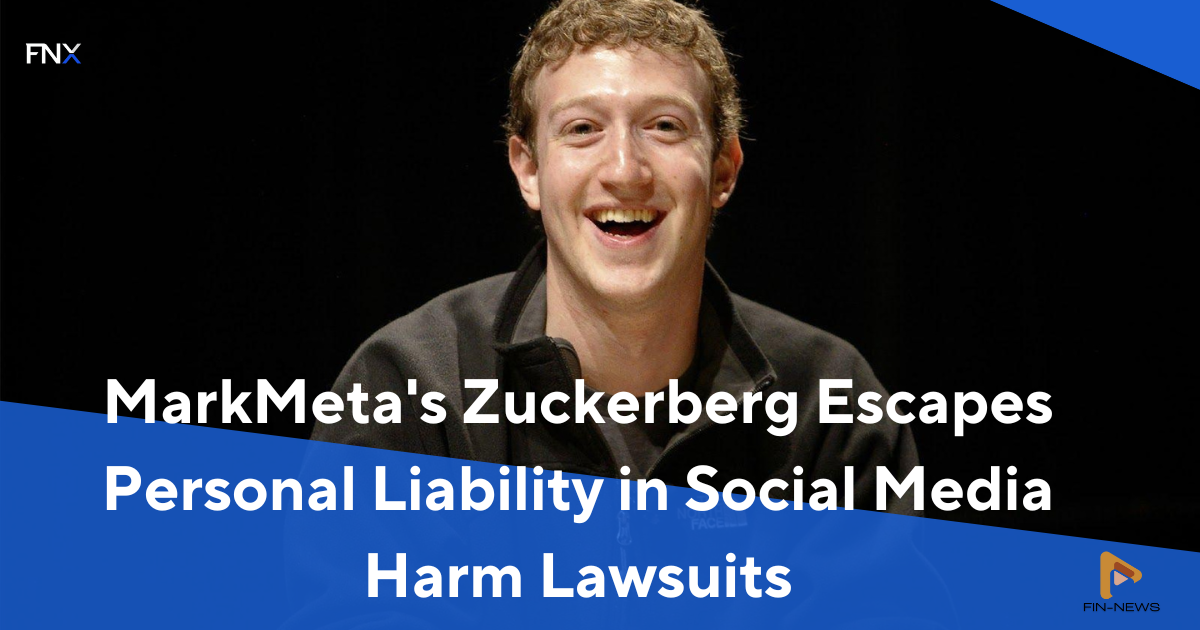
In a significant legal development, U.S. District Judge Yvonne Gonzalez Rogers ruled that Meta CEO Mark Zuckerberg is not personally liable in 25 lawsuits alleging that Meta's platforms, Instagram and Facebook, are addictive and harmful to children's mental health. The decision, handed down on November 7, 2024, has far-reaching implications for the tech industry and the accountability of its executives.
The Case Against Zuckerberg
The lawsuits, filed in various states across the U.S., accused Zuckerberg of being the "guiding spirit" behind Meta's efforts to downplay the risks of social media addiction and mental health problems among young users.Plaintiffs argued that Zuckerberg was aware of internal research highlighting these dangers but chose to prioritize profit over the well-being of children.
Specifically, the plaintiffs alleged that Zuckerberg:
Ignored internal warnings:The lawsuits claimed that Zuckerberg disregarded multiple internal studies that warned of the negative impacts of social media on young users, particularly teenage girls.
Publicly downplayed risks:Despite internal knowledge, Zuckerberg publicly minimized the risks associated with social media use, often presenting it as a positive force for connection and communication.
- Prioritized profit over safety: The plaintiffs argued that Zuckerberg's focus on user growth and engagement, driven by the pursuit of advertising revenue, led to the design of addictive algorithms that kept users hooked for longer periods.
The Court's Ruling
Judge Gonzalez Rogers, while acknowledging the serious allegations against Zuckerberg, found that the plaintiffs had failed to present sufficient evidence to establish his personal liability.The court emphasized that "control of corporate activity alone is insufficient" to hold an individual accountable for corporate misconduct.
key factors in the court's decision included:
- Lack of specific allegations: The plaintiffs did not provide detailed examples of Zuckerberg's direct involvement in specific decisions that led to harm.
- Corporate structure: The court recognized the complex corporate structure of Meta and the delegation of authority to various executives and teams.
- Legal precedent: The court cited previous cases where CEOs were not held personally liable for corporate misconduct unless they had direct involvement or knowledge of specific wrongdoing.
Implications for the Tech Industry
The court's decision has significant implications for the tech industry and the accountability of its executives. While it provides some legal protection for CEOs, it does not absolve them of all responsibility. The ruling underscores the importance of corporate governance and ethical considerations in the development and operation of technology platforms.
Some potential consequences of the decision include:
- Increased scrutiny of corporate practices: The ruling may lead to increased scrutiny of tech companies' internal practices, particularly regarding user safety and data privacy.
- Potential for legislative action: Lawmakers may consider introducing legislation to hold tech executives more accountable for the social and psychological impacts of their products.
- Continued legal challenges: While Zuckerberg may have escaped personal liability in this case, it is likely that plaintiffs will continue to explore other legal avenues to hold him and Meta accountable for the harm caused by their platforms.
The Broader Debate on Social Media and Mental Health
The lawsuits against Zuckerberg and Meta highlight a broader societal debate about the impact of social media on mental health, particularly among young people. Research has shown links between excessive social media use and increased rates of depression, anxiety, and cyberbullying.
As the use of social media continues to grow, it is essential to address these concerns and develop strategies to mitigate the negative impacts. Some potential solutions include:
- Increased transparency: Tech companies should be more transparent about their algorithms and data practices.
- Improved content moderation: Platforms should invest in more effective content moderation tools to remove harmful content.
- Digital literacy education: Schools and parents should educate young people about the responsible use of social media.
- Mental health support: Increased access to mental health services is crucial for those struggling with the negative effects of social media.
The legal battle surrounding Zuckerberg and Meta is just one chapter in the ongoing conversation about the role of technology in society. As we move forward, it is imperative to strike a balance between innovation and the well-being of individuals, particularly the most vulnerable members of our society

Leave a comment
Your email address will not be published. Required fields are marked *